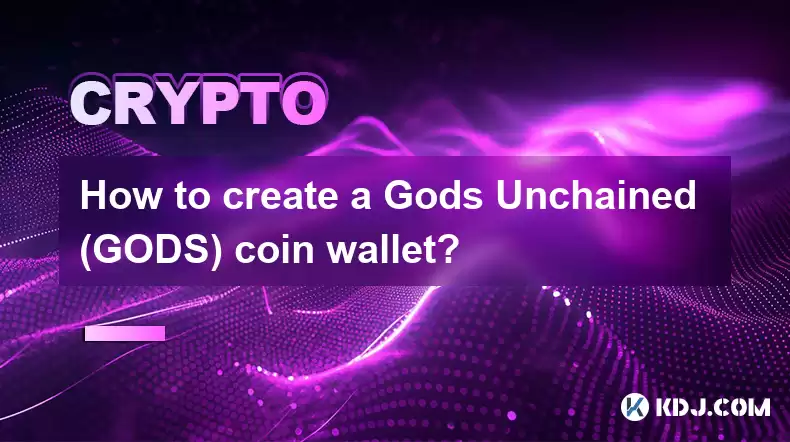-
 Bitcoin
Bitcoin $118800
-0.34% -
 Ethereum
Ethereum $4237
-0.62% -
 XRP
XRP $3.141
-1.79% -
 Tether USDt
Tether USDt $1.000
0.00% -
 BNB
BNB $808.8
0.01% -
 Solana
Solana $175.2
-3.73% -
 USDC
USDC $0.0000
0.01% -
 Dogecoin
Dogecoin $0.2238
-4.06% -
 TRON
TRON $0.3466
2.21% -
 Cardano
Cardano $0.7761
-3.07% -
 Hyperliquid
Hyperliquid $43.18
-4.79% -
 Chainlink
Chainlink $21.07
-3.83% -
 Stellar
Stellar $0.4347
-2.12% -
 Sui
Sui $3.686
-4.85% -
 Bitcoin Cash
Bitcoin Cash $581.5
1.78% -
 Hedera
Hedera $0.2488
-4.10% -
 Ethena USDe
Ethena USDe $1.001
-0.03% -
 Avalanche
Avalanche $22.89
-3.94% -
 Litecoin
Litecoin $120.0
-2.10% -
 Toncoin
Toncoin $3.394
1.58% -
 UNUS SED LEO
UNUS SED LEO $8.976
-1.54% -
 Shiba Inu
Shiba Inu $0.00001297
-4.26% -
 Uniswap
Uniswap $11.08
0.60% -
 Polkadot
Polkadot $3.873
-4.40% -
 Cronos
Cronos $0.1682
2.02% -
 Dai
Dai $1.000
0.00% -
 Ethena
Ethena $0.8056
-2.09% -
 Bitget Token
Bitget Token $4.413
-0.95% -
 Monero
Monero $264.4
-0.70% -
 Pepe
Pepe $0.00001122
-7.04%
How to create a Gods Unchained (GODS) coin wallet?
Choosing the appropriate wallet for GODS storage depends on factors such as security, convenience, and the amount of funds intended for storage.
Dec 25, 2024 at 11:19 am

Key Points:
- Understanding the types of wallets available for GODS storage
- Choosing a suitable wallet based on security, convenience, and accessibility needs
- Safely and securely creating and managing a GODS wallet
Step-by-Step Guide to Creating a Gods Unchained (GODS) Coin Wallet:
1. Determine Your Wallet Type
- Software wallets: Stored on computers, smartphones, or other digital devices. They offer convenience and ease of use but may be more vulnerable to hacking.
- Hardware wallets: Physical devices dedicated to cryptocurrency storage. They provide enhanced security but can be expensive.
- Custodial wallets: Third-party platforms that manage wallet keys on behalf of users. They are convenient but sacrifice direct control over funds.
- Paper wallets: Printable sheets that contain wallet addresses and private keys. They offer excellent security but require careful management to prevent loss or theft.
2. Choose a Reputable Platform or Device
- Consider factors like security measures, reputation, user-friendliness, and platform support.
- Software wallets: Popular options include MetaMask, Coinbase Wallet, and Trust Wallet.
- Hardware wallets: Leading brands include Trezor, Ledger, and SafePal.
- Custodial wallets: Binance, Kraken, and Gemini provide secure and accessible wallet solutions.
- Paper wallets: Services like MyEtherWallet offer paper wallet generation and management.
3. Create and Secure Your Wallet
- Follow the instructions provided by your chosen wallet provider.
- Create a strong password and store it securely.
- Enable additional security features like two-factor authentication (2FA) or a seed phrase.
- Software wallets: Download the app and create an account using your email or social media credentials. Enable 2FA for enhanced security.
- Hardware wallets: Connect the device, initialize it with a PIN, and generate a seed phrase. Store the seed phrase in a safe and accessible location.
- Custodial wallets: Sign up for an account using your email or social media credentials. Follow the steps to create a wallet.
- Paper wallets: Generate a wallet address and private key using an online tool or MyEtherWallet. Print and store the paper wallet in a secure location.
4. Transfer GODS to Your Wallet
- Obtain GODS from exchanges, marketplaces, or other sources.
- Locate the "Receive" or "Deposit" option in your wallet.
- Enter the GODS wallet address provided in the "Receive" tab.
- Initiate the transfer from your source, specifying the desired amount of GODS.
5. Manage and Monitor Your Wallet
- Regularly check your wallet balance and transaction history.
- Update software wallets with the latest security patches.
- If using a hardware wallet, keep it connected to a computer with up-to-date software.
- Consider diversifying your crypto storage across multiple wallets for enhanced security.
FAQs:
Q: Is it necessary to have a hardware wallet for storing GODS?
A: While hardware wallets offer enhanced security, they are not mandatory for storing GODS. Software wallets are also viable options, provided that they implement robust security measures and are used responsibly.
Q: Can I create multiple wallets for one GODS account?
A: Yes, you can create multiple wallets for the same GODS account. This allows you to separate funds for different purposes, such as trading, investment, or long-term storage.
Q: Is it safe to store large amounts of GODS in a custodial wallet?
A: While custodial wallets provide convenience and accessibility, it is generally advisable to store large amounts of crypto assets in hardware wallets or decentralized wallets that offer greater control over private keys.
Disclaimer:info@kdj.com
The information provided is not trading advice. kdj.com does not assume any responsibility for any investments made based on the information provided in this article. Cryptocurrencies are highly volatile and it is highly recommended that you invest with caution after thorough research!
If you believe that the content used on this website infringes your copyright, please contact us immediately (info@kdj.com) and we will delete it promptly.
- BlockDAG, Chainlink, Hedera: The Cryptos Enterprises are Eyeing
- 2025-08-12 09:30:12
- Dogecoin's Wild Ride: Big Holders, Price Push, and What's Next for the Meme Coin
- 2025-08-12 08:30:12
- Coin Master Board Adventure: Free Energy and the Thrill of the Board
- 2025-08-12 08:50:12
- Bitcoin to $133,000? Here's What the Experts Are Saying
- 2025-08-12 08:30:12
- LYNO AI Presale: Early Bird Opportunity Before Token Price Hike
- 2025-08-12 08:50:12
- Dogecoin, Tron Update, Cold Wallet ROI: Navigating Crypto's Choppy Waters
- 2025-08-12 09:30:12
Related knowledge

How to purchase Aragon (ANT)?
Aug 09,2025 at 11:56pm
Understanding Aragon (ANT) and Its PurposeAragon (ANT) is a decentralized governance token that powers the Aragon Network, a platform built on the Eth...

Where to trade Band Protocol (BAND)?
Aug 10,2025 at 11:36pm
Understanding the Role of Private Keys in Cryptocurrency WalletsIn the world of cryptocurrency, a private key is one of the most critical components o...

What is the most secure way to buy Ocean Protocol (OCEAN)?
Aug 10,2025 at 01:01pm
Understanding Ocean Protocol (OCEAN) and Its EcosystemOcean Protocol (OCEAN) is a decentralized data exchange platform built on blockchain technology,...

Where can I buy UMA (UMA)?
Aug 07,2025 at 06:42pm
Understanding UMA and Its Role in Decentralized FinanceUMA (Universal Market Access) is an Ethereum-based decentralized finance (DeFi) protocol design...

How to buy Storj (STORJ) tokens?
Aug 09,2025 at 07:28am
Understanding Storj (STORJ) and Its Role in Decentralized StorageStorj is a decentralized cloud storage platform that leverages blockchain technology ...

Where to find the best price for Audius (AUDIO)?
Aug 11,2025 at 04:01pm
Understanding the Basics of Ethereum StakingEthereum staking refers to the process of locking up ETH tokens to support the security and operations of ...

How to purchase Aragon (ANT)?
Aug 09,2025 at 11:56pm
Understanding Aragon (ANT) and Its PurposeAragon (ANT) is a decentralized governance token that powers the Aragon Network, a platform built on the Eth...

Where to trade Band Protocol (BAND)?
Aug 10,2025 at 11:36pm
Understanding the Role of Private Keys in Cryptocurrency WalletsIn the world of cryptocurrency, a private key is one of the most critical components o...

What is the most secure way to buy Ocean Protocol (OCEAN)?
Aug 10,2025 at 01:01pm
Understanding Ocean Protocol (OCEAN) and Its EcosystemOcean Protocol (OCEAN) is a decentralized data exchange platform built on blockchain technology,...

Where can I buy UMA (UMA)?
Aug 07,2025 at 06:42pm
Understanding UMA and Its Role in Decentralized FinanceUMA (Universal Market Access) is an Ethereum-based decentralized finance (DeFi) protocol design...

How to buy Storj (STORJ) tokens?
Aug 09,2025 at 07:28am
Understanding Storj (STORJ) and Its Role in Decentralized StorageStorj is a decentralized cloud storage platform that leverages blockchain technology ...

Where to find the best price for Audius (AUDIO)?
Aug 11,2025 at 04:01pm
Understanding the Basics of Ethereum StakingEthereum staking refers to the process of locking up ETH tokens to support the security and operations of ...
See all articles

























































































